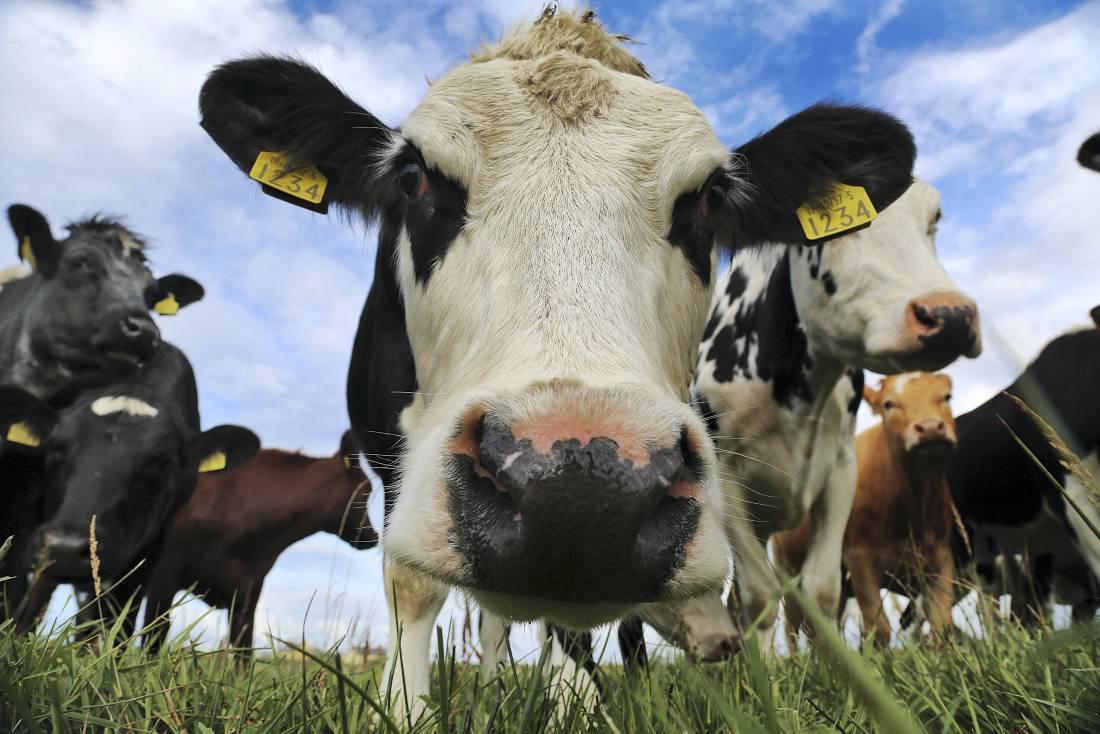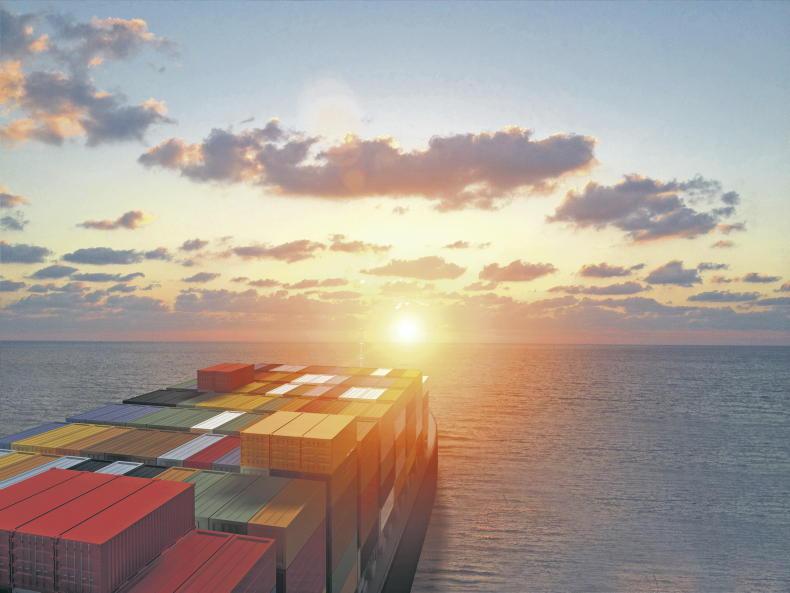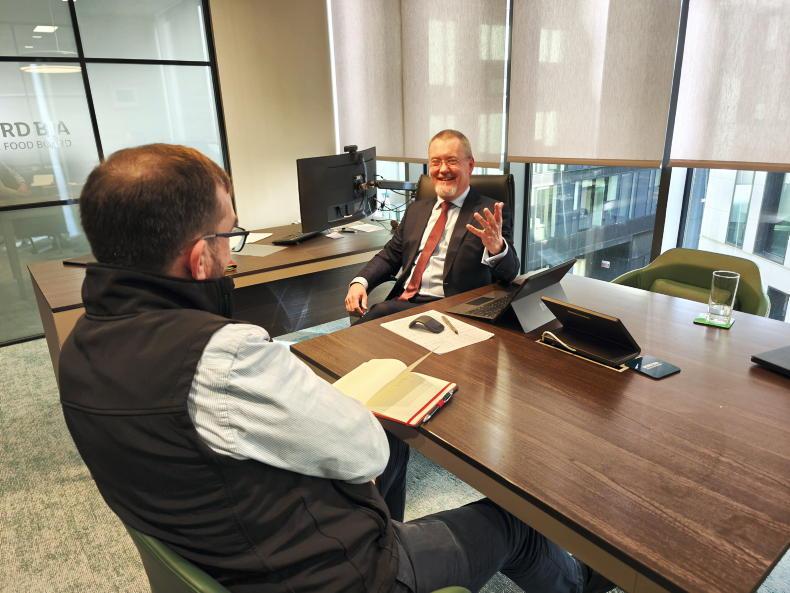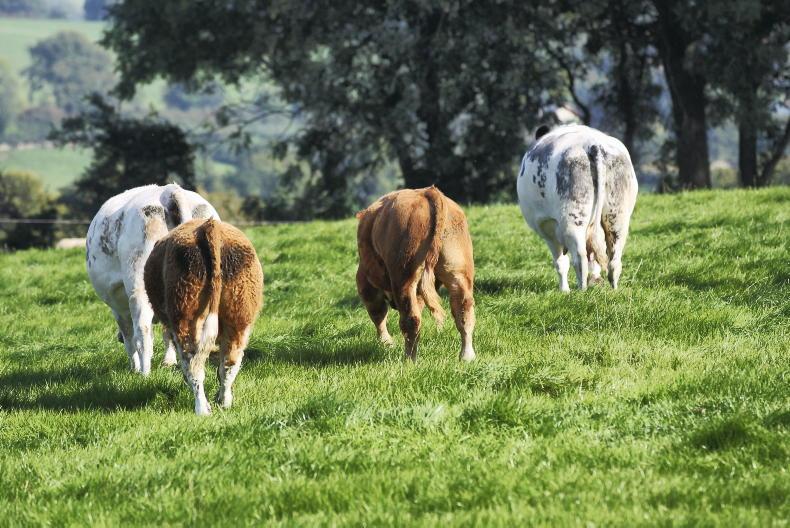Following the visit to Ireland by two veterinary officials from Egypt earlier this week, the market for Irish live cattle exports to Egypt has now been officially re-opened.
The aim of the visit was to look at the Irish cattle traceability system and animal health controls, with the view to possibly re-opening the market.
As revealed by the Irish Farmers Journal last week, the Egyptian autorities scheduled the visit as the country's military is looking to source live cattle overseas.
The officials met with counterparts in the Department of Agriculture in Dublin and then visited a number of farms and a meat plant in the Leinster area. On one farm, they saw first-hand a calf being ear-tagged and then registered online on the Agfood.ie system.
After the visit, the Egyptian veterinary officials agreed veterinary protocols, clearing the way for shipments of Irish cattle to Egypt once again. Egypt’s total live cattle imports is 150,000 annually, mainly from South America.
First shipment
Bord Bia beef specialist Joe Burke confirmed to the Irish Farmers Journal that an agreement had been made.
“An agreement was made between the Egyptian officials and the Department of Agriculture, and it will be coming into validation very shortly,” he said.
Burke said that the Egyptians want to import mainly young bulls, either pure dairy or beef crossbred with dairy.
Three Irish boats with a capacity of between 1,500 to 2,000 animals have already been approved to carry cattle to Egypt and the first shipment is expected to leave by the end of the year, Burke said. Smaller shipments are preferred for the convenience.
Irish live cattle exports to Egypt ceased in January of 1997, but in its peak year of 1994, Ireland exported over 253,000 cattle to Egypt.
“Irish exporters are already getting enquiries from potential customers, so we are very optimistic. The market is no longer able to take in these high numbers, but it is still a very attractive market for Irish live cattle exports.
“Even though it’s been 20 years since Irish cattle was exported to Egypt, there is still a good memory there for the good-quality cattle we exported,” he told the Irish Farmers Journal.
Spain and France are Ireland’s main European competitors in the Egyptian market. Because of the extra distance, Ireland will have higher shipping costs. It takes 10 days for a boat-load to travel to Egypt, which means a higher standard of welfare is needed for cattle on board.
“It is becoming more economically viable, with cattle prices narrowing between the countries,” he said.
The importance of securing this re-opening
In response to the news of the Egyptian market re-opening, IFA national livestock committee chair Henry Burns said that a strong live export trade is vital for Irish beef farmers.
Speaking ahead of the Charolais Breeders meeting in Carrick on Shannon on Friday, Burns said the Minister for Agriculture and the Government needs to prioritise the live trade and access to both International and European markets.
"Following a lot of work by IFA, the Department of Agriculture and exporters, the Egyptian veterinary delegation, which visited Ireland this week, have agreed protocols which should clear the way for the resumption of the live cattle trade to this important market.
"With an additional 50,000 to 70,000 head of finished cattle forecast for the second half of 2016, a resumption of a strong international live export trade is essential," he said.
He also said that there were on-going discussions with exporters about the resumption of live exports to Libya. In the past, Libya was a very important market for Irish live cattle taking up to 81,000 head in 1995.
In 2013, when the Libyan market reopened to Ireland after an absence of 15 years, Ireland exported 14,542 head and a further 17,667 head in 2014.
A real drive, he also said, is needed to open the live cattle market to Turkey.
"In 2015, France exported up to 80,000 head of live cattle to Turkey and currently the market is active but Ireland is unfairly denied access," he said.
Read more
Egyptian visit concludes today
Improved prospects for live exports
Following the visit to Ireland by two veterinary officials from Egypt earlier this week, the market for Irish live cattle exports to Egypt has now been officially re-opened.
The aim of the visit was to look at the Irish cattle traceability system and animal health controls, with the view to possibly re-opening the market.
As revealed by the Irish Farmers Journal last week, the Egyptian autorities scheduled the visit as the country's military is looking to source live cattle overseas.
The officials met with counterparts in the Department of Agriculture in Dublin and then visited a number of farms and a meat plant in the Leinster area. On one farm, they saw first-hand a calf being ear-tagged and then registered online on the Agfood.ie system.
After the visit, the Egyptian veterinary officials agreed veterinary protocols, clearing the way for shipments of Irish cattle to Egypt once again. Egypt’s total live cattle imports is 150,000 annually, mainly from South America.
First shipment
Bord Bia beef specialist Joe Burke confirmed to the Irish Farmers Journal that an agreement had been made.
“An agreement was made between the Egyptian officials and the Department of Agriculture, and it will be coming into validation very shortly,” he said.
Burke said that the Egyptians want to import mainly young bulls, either pure dairy or beef crossbred with dairy.
Three Irish boats with a capacity of between 1,500 to 2,000 animals have already been approved to carry cattle to Egypt and the first shipment is expected to leave by the end of the year, Burke said. Smaller shipments are preferred for the convenience.
Irish live cattle exports to Egypt ceased in January of 1997, but in its peak year of 1994, Ireland exported over 253,000 cattle to Egypt.
“Irish exporters are already getting enquiries from potential customers, so we are very optimistic. The market is no longer able to take in these high numbers, but it is still a very attractive market for Irish live cattle exports.
“Even though it’s been 20 years since Irish cattle was exported to Egypt, there is still a good memory there for the good-quality cattle we exported,” he told the Irish Farmers Journal.
Spain and France are Ireland’s main European competitors in the Egyptian market. Because of the extra distance, Ireland will have higher shipping costs. It takes 10 days for a boat-load to travel to Egypt, which means a higher standard of welfare is needed for cattle on board.
“It is becoming more economically viable, with cattle prices narrowing between the countries,” he said.
The importance of securing this re-opening
In response to the news of the Egyptian market re-opening, IFA national livestock committee chair Henry Burns said that a strong live export trade is vital for Irish beef farmers.
Speaking ahead of the Charolais Breeders meeting in Carrick on Shannon on Friday, Burns said the Minister for Agriculture and the Government needs to prioritise the live trade and access to both International and European markets.
"Following a lot of work by IFA, the Department of Agriculture and exporters, the Egyptian veterinary delegation, which visited Ireland this week, have agreed protocols which should clear the way for the resumption of the live cattle trade to this important market.
"With an additional 50,000 to 70,000 head of finished cattle forecast for the second half of 2016, a resumption of a strong international live export trade is essential," he said.
He also said that there were on-going discussions with exporters about the resumption of live exports to Libya. In the past, Libya was a very important market for Irish live cattle taking up to 81,000 head in 1995.
In 2013, when the Libyan market reopened to Ireland after an absence of 15 years, Ireland exported 14,542 head and a further 17,667 head in 2014.
A real drive, he also said, is needed to open the live cattle market to Turkey.
"In 2015, France exported up to 80,000 head of live cattle to Turkey and currently the market is active but Ireland is unfairly denied access," he said.
Read more
Egyptian visit concludes today
Improved prospects for live exports










SHARING OPTIONS